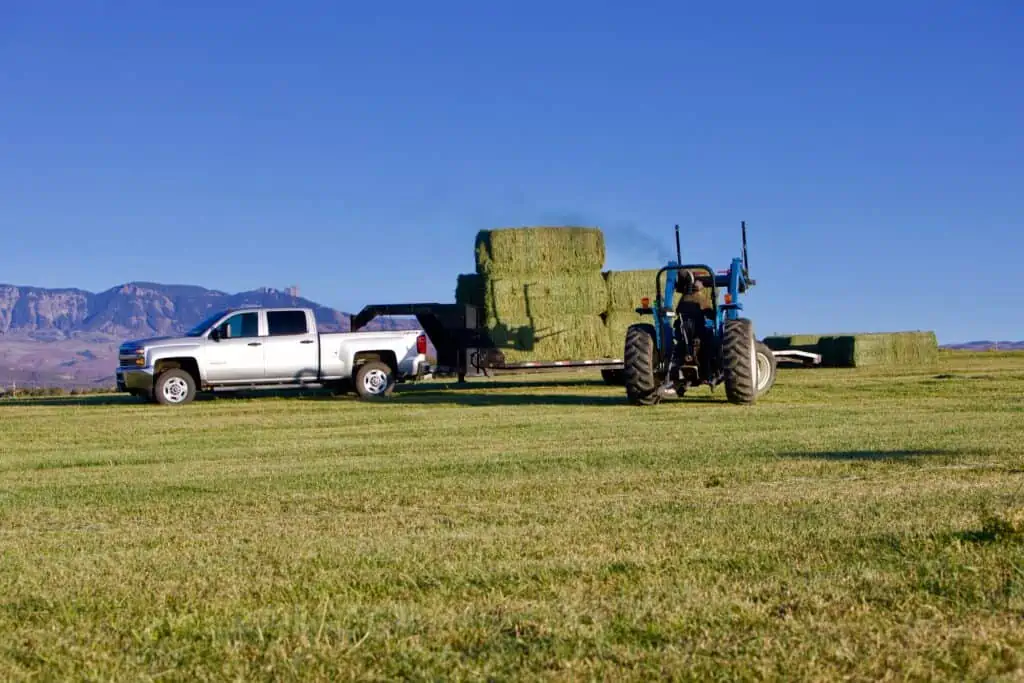THE COLORADO FARM AND RANCH LIFESTYLE
What to expect if you buy a ranch and move to the country
By Gary Hubbell, Ranch Real Estate Broker
By now you’ve probably gone through my whole website and read a lot of content about Colorado ranches, vineyards, farms, horses, cattle, and hay production that you’ve found interesting. If some of the local folks happen to be web-surfing and find my site, they’ll be particularly interested in this article. If there’s anything I write that can cause comment, it’s this piece.
There’s always somewhat of a disconnect when hip, happening people from the city move to the country to slow down. The problem is, they can’t slow down. When the neighbor is driving his cattle down the highway and you’re already running 10 minutes late for an appointment, resist the urge to race through his herd or shout something stupid at the cowboys. Remember, they were here before you were, and it’s not their fault you’re running behind. You should have known it’s time to gather the cows and bring them down from the high country.
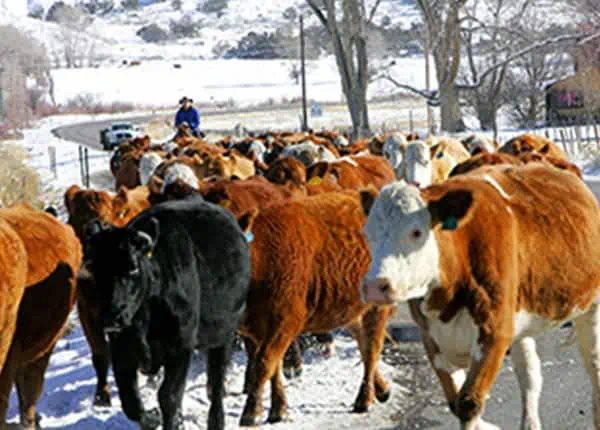
This rancher is moving his cows from one winter pasture to another. Take it easy and watch out for his dogs!
You’ll find that technological gadgets don’t work that well here. Cell phone reception is spotty, if you get reception at all, and people won’t be impressed if you’re writing little curlicue notes in your Palm Pilot or typing away on your Blackberry.
People find it much more important if you look them in the eye, shake hands like a man (even if you’re a woman), and spend a little time visiting. You may have a lot to teach them about the way things were done where you came from—such as construction techniques, education models, counseling sessions, computer networks—but they may not be interested at all.
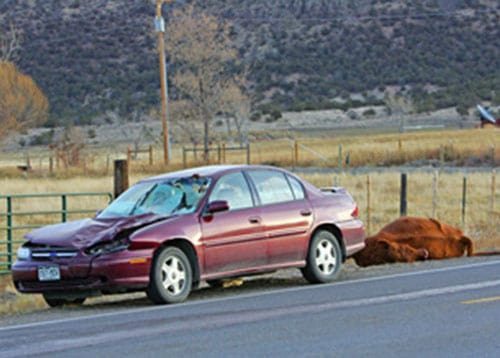
Cows can get out on the road, sometimes with dramatic consequences. This driver was hurrying to work in the early morning, before dawn, and didn’t notice a 1,200-pound cow in the road. The driver was fine, but obviously the cow wasn’t.
If you’ll shut up and listen for a minute, you may learn about things that you really need to know, such as how to build a chicken coop and keep the raccoons and foxes out; how to irrigate the property you just bought; where to get good organic produce; how to build a good tight fence that will be wildlife-friendly; and who is a good electrician, excavator, or plumber.
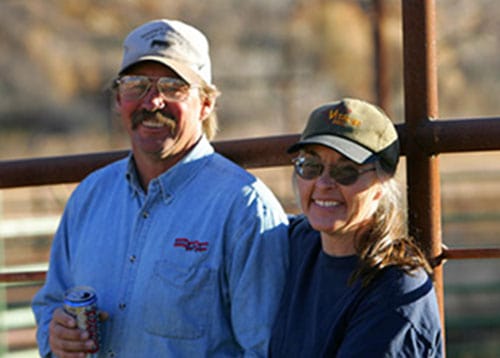
They may seem slow and set in their ways, but they’re also pretty damned smart people who have considered a lot of the options and found what works for them.
Don’t go into a public meeting and make a spectacle of yourself, no matter how ignorant you may consider the process and their decisions to be. You’ll be immediately branded as “that hothead” or something worse, and your effectiveness at future meetings will be greatly diminished. As with any political structure, there are many unspoken underlying agendas, and until you figure out the landscape, keep your own counsel. And on that same note, NEVER say “Back in ______________ where I came from, we did it this way.” They couldn’t care less.
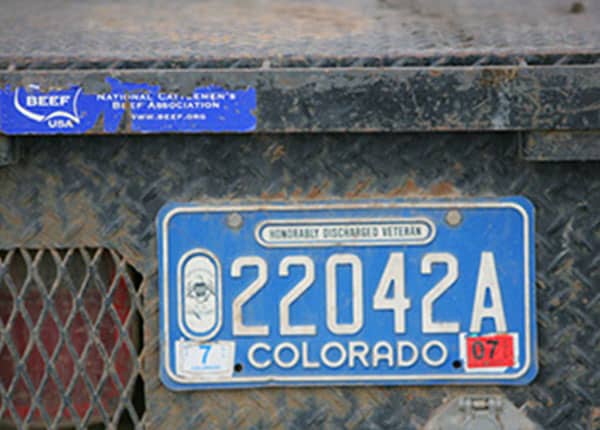
Do go to as many community gatherings and events as you can. Make a point to introduce yourself and get to know people. You’ll find there are many people like you, folks who are seeking a simpler life and came here from somewhere else. If you find a kinship with someone, invite them over to supper or some such occasion, and make sure that kids and dogs are welcome.
Do small favors, such as emailing a picture of someone’s kid hitting a home run at the Little League game. Help your neighbor when he’s out building fence, or bring a plate of cookies to the elderly couple down the road. You’ll find that you will learn a lot about the local community and how it was founded.
Don’t engage in local gossip. You will never fathom why people like or dislike each other, and take it all with a grain of salt. Give everyone the benefit of the doubt for the first meeting, and look them in the eye and say hello, no matter if they look like the dirtiest, smelliest reprobate you’ve ever seen. That may be the guy who delivers your firewood next winter when you’re about to freeze to death in that drafty old farmhouse you bought.
Don’t drop names, even if a big rock star is your best friend and you know half the politicians in Washington. You never know, the guy at the church potluck could have been the rock star’s road manager for the past ten years and maybe he knows what you did on that last concert tour.

Don’t expect the same services, luxuries, and conveniences you had where you came from. You won’t find artisan bakeries, fresh seafood, gourmet coffee, theater, nightlife, or such things. You will find neighborhood barbecues, county fairs, country dances, community theater, high school basketball games, and Fourth of July parades.
Do stand up for your rights. If you bought the property, you own it, and it doesn’t matter if Uncle Jim had let Tommy and all his sons and cousins hunt deer on it for the last 30 years. If you don’t want them hunting deer on your place, explain gently that the property has changed hands and they’ve lost their hunting spot. It may take a few years to get rid of these attitudes, but be patient. It’s more important to be respected than it is to be liked. Nobody respects a doormat, and there will be plenty of people willing to let you be their doormat.
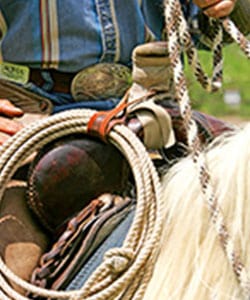
Pay your bills on the spot if you can. Don’t leave a local account hanging for 30 days or more if you have the money in your account, no matter if the bill is due or not. The instant payment will earn you silent goodwill wherever you go, and it will save you money in the long run. When you really need a favor from a tradesman, the plumber might just come on Christmas Eve if your sewage is backed up and you have a house full of guests—if you paid promptly the last time you had an invoice.
If you think your neighbor is stealing your irrigation water, before you confront him about it, research your rights and talk to an impartial authority, such as the water commissioner.
Volunteer as much as you can, whether it’s reading to children for an hour at the library, leading a 4H group, working as a stagehand for the community theater, or hosting a radio show on the community radio station. It will pay you back again and again.
Cowboy up. Stand tall. Be tough. Don’t whine. Take advice when someone is kind enough to offer it to you.
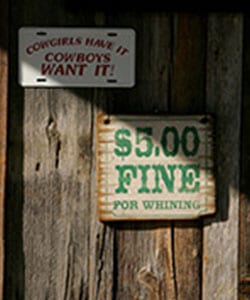
Don’t fly in with a private plane, get picked up with a new Yukon, tell everybody how it’s going to be around here, and leave five days later—and stay away for another ten months. If you expect to be respected and liked, stick around, get to know people, and don’t be ostentatious about your wealth. On that same note, go low-key with the big ranch gate and sign.
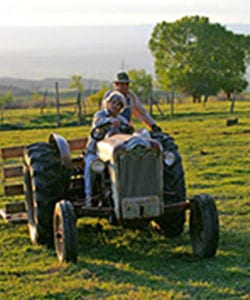
Do what you want to do with your property. If you like raising goats, then have a ball. Raise goats. If you want to weave tapestries and fly them from your flagpole, go ahead. But if you want to build muscle cars and dragsters and race the engines at 11 p.m., know that you will not be loved by your neighbors, and they will find a way to get you back.
On the same note, respect the local traditions. If your neighbor has hay down and a thunderstorm is coming, don’t call the sheriff because he’s out there baling hay at 1 a.m. He’s doing what he has to do, and he doesn’t want to be running a tractor late at night any more than you want to hear it. Put up with it when it happens, because his right to farm trumps your right to sleep. You bought a house next to a hayfield, and you love seeing that green field and he has to make some money from his investment.
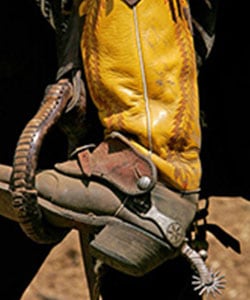
Don’t be a hypocrite. Don’t move into a cattle ranching community and loudly proclaim yourself as a vegetarian. Don’t go around telling everybody what an environmentalist you are, and then subdivide your property. Don’t invite the media to tour your property, telling the world how you’ve discovered earth-saving alternatives to traditional agriculture, and then end up producing 25% as much hay per acre of the ranch down the road.
Do business locally. Sure, there are big box stores within an hour’s drive of practically everywhere in the Continental U.S., but the big box stores won’t help send the local band to the Rose Bowl parade or contribute to the Future Farmers of America scholarship fund. Buy half a beef from the local rancher and a lamb from the sheep rancher. Patronize the farmer’s markets and local craftsmen.
Give a good deal to locals if you want to. Maybe you make $750 an hour as an attorney in the city, but $200 an hour would be a lot in your new hometown. Settle for $150. A little local goodwill is a lot more important than making top dollar. Top dollar is what you make in your old life. Friends are what you make here. Don’t keep score. It will all come back in the end.
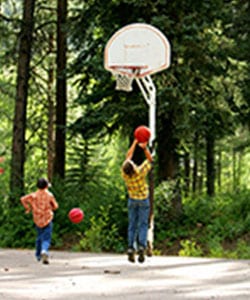
Take the time to learn your new area. Let people show you around. Be a good neighbor. Take a deep breath. Relax. Make your own coffee, and quit telling everybody about Starbucks. Build your chicken coop, grow your wine grapes, try your hand at breaking a colt, help your neighbors round up their cattle. Slow down. Enjoy it. That’s why you wanted to move here.
Ranching lifestyle Colorado real estate cattle ranches for sale horse properties for sale ranch broker

